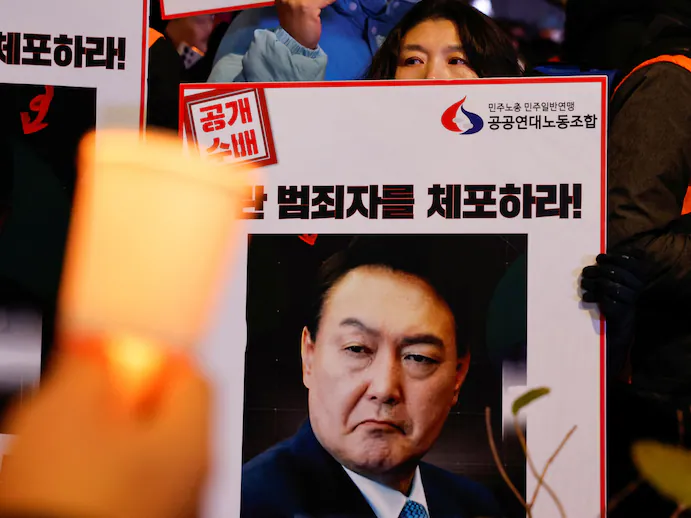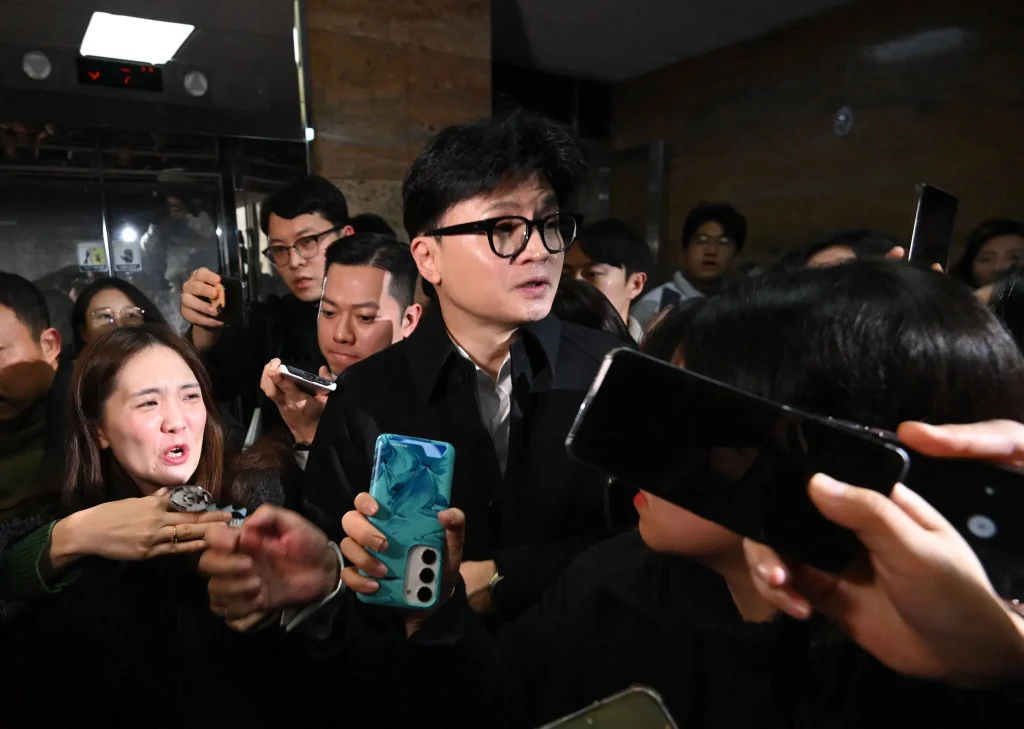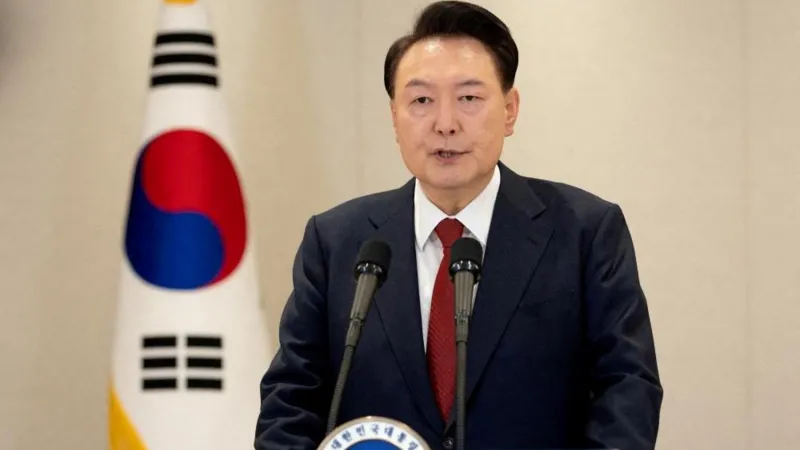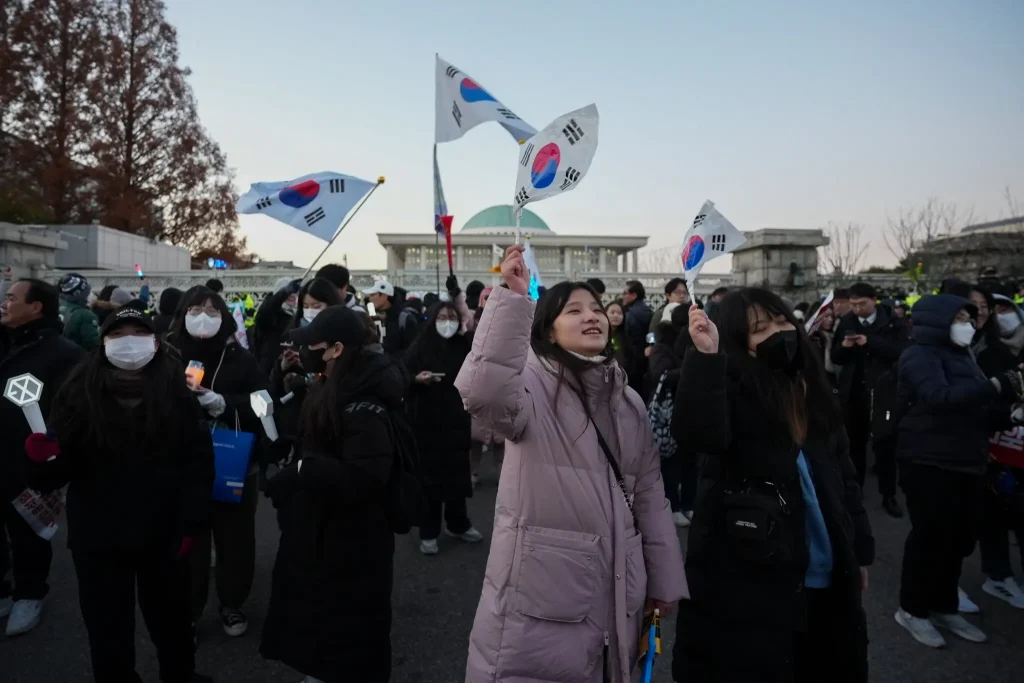Yoon Suk Yeol: S Korea begins impeachment trial against suspended president
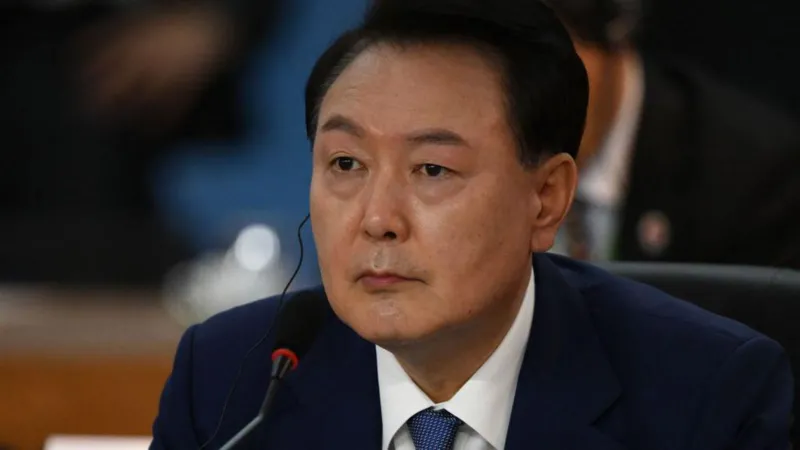
South Korea has officially launched the impeachment trial against President Yoon Suk Yeol, marking a significant and pivotal moment in the nation’s political landscape. The trial, which began today, follows a series of legal challenges and political controversy surrounding Yoon’s presidency. Suspended from office due to various charges, including allegations of abuse of power and misconduct, Yoon now faces a legal process that will determine whether he will be permanently removed from office or reinstated.
Yoon’s impeachment has ignited intense political debate and public scrutiny, with supporters and critics alike anxiously awaiting the outcome of the trial. The case is not only a reflection of the current political turbulence in South Korea but also a test of the country’s democratic institutions and the rule of law.
Background to the Impeachment
The impeachment of President Yoon Suk Yeol comes after a series of scandals and controversies that have plagued his administration. Yoon, who took office less than two years ago, quickly became a polarizing figure in South Korean politics. His presidency has been marked by allegations of authoritarian behavior, disregard for constitutional norms, and claims of corruption linked to various appointments and government decisions.
The immediate catalyst for the impeachment proceedings was a high-profile scandal involving Yoon’s office allegedly pressuring law enforcement and other branches of government to interfere in investigations against his allies. Critics argue that Yoon has abused his power to shield political allies from legal scrutiny and to influence policy decisions in favor of his political supporters, undermining the principles of fairness and justice.
In addition to allegations of political interference, Yoon is accused of having violated ethical guidelines and using his office for personal gain. These charges have further fueled the belief among many South Koreans that the president is unfit to hold office and that his removal is necessary to restore integrity to the government.
The Impeachment Charges
The impeachment charges against Yoon Suk Yeol are primarily centered on claims of corruption, abuse of power, and violations of the country’s constitution. Specifically, the accusations suggest that Yoon used his presidential powers to influence judicial proceedings and suppress political opposition. These allegations mirror concerns that his administration has been marked by overreach and an erosion of democratic norms.
Furthermore, Yoon is accused of taking actions that have undermined public trust in South Korea’s institutions. These actions allegedly include pressuring the National Assembly to block investigations into his activities and using his influence to control media coverage of his administration’s scandals. Critics argue that such actions have created a climate of fear and intimidation, diminishing the country’s commitment to transparency and accountability.
While Yoon’s defense team has repeatedly denied the charges, arguing that the impeachment proceedings are politically motivated, public opinion remains divided. Supporters of the president insist that he has been unfairly targeted by his opponents, while critics maintain that the allegations against him are serious and merit legal scrutiny.
The Role of the Constitutional Court
The Constitutional Court of South Korea now plays a central role in determining the fate of President Yoon. A panel of judges will review the evidence and arguments presented during the impeachment trial and issue a ruling. A two-thirds majority in the Constitutional Court is required to uphold the impeachment and remove Yoon from office.
The trial will unfold over the coming weeks, with both the prosecution and defense presenting their cases. The prosecution will aim to demonstrate that Yoon’s actions were not only illegal but also harmful to the principles of democratic governance. The defense will likely argue that Yoon’s conduct was within the bounds of his presidential powers and that the charges against him are part of an orchestrated political campaign to undermine his leadership.
The Constitutional Court’s decision will be a momentous one, as it will set a precedent for how South Korea handles future cases of presidential misconduct. The outcome of the trial will also have far-reaching implications for the country’s political future, as it will either reinforce the legitimacy of democratic checks and balances or raise questions about the ability of South Korea’s institutions to hold elected officials accountable.
National Divisions and Public Opinion
The impeachment trial has sharply divided public opinion in South Korea. Yoon’s supporters argue that his administration is being unfairly targeted by opposition factions and that the impeachment process is being driven by political motivations rather than genuine legal concerns. They contend that the charges against him are exaggerated and that he should be allowed to continue his work as president.
On the other hand, many South Koreans believe that Yoon’s actions have undermined the country’s democracy and violated the principles of justice and fairness. Public protests calling for his removal have intensified in recent months, with demonstrators accusing him of using his office for personal and political gain.
The public’s divided opinion on the impeachment reflects the deep political polarization that has taken hold in South Korea. For some, Yoon represents the country’s future, while for others, he embodies the worst excesses of political power. Regardless of the trial’s outcome, it is clear that the decision will shape the direction of South Korean politics for years to come.
What’s Next for South Korea?
As the impeachment trial of President Yoon Suk Yeol continues, the nation will closely watch how the legal process unfolds. The trial not only represents a test of the president’s leadership but also the strength of South Korea’s democratic institutions. If Yoon is removed from office, it will send a strong message about the country’s commitment to upholding the rule of law and holding public officials accountable, regardless of their position or political influence.
However, if the impeachment is overturned and Yoon is reinstated, it could lead to heightened political instability and further polarization. The decision will undoubtedly have profound consequences for South Korea’s governance, the relationship between the president and other branches of government, and the future of the country’s political climate.
As the trial progresses, South Koreans are left to grapple with these questions, hoping that their democratic system will be able to navigate the complexities of this historic and controversial moment. The final verdict will not only affect the future of President Yoon but also the trajectory of South Korea’s democracy in the years ahead.


